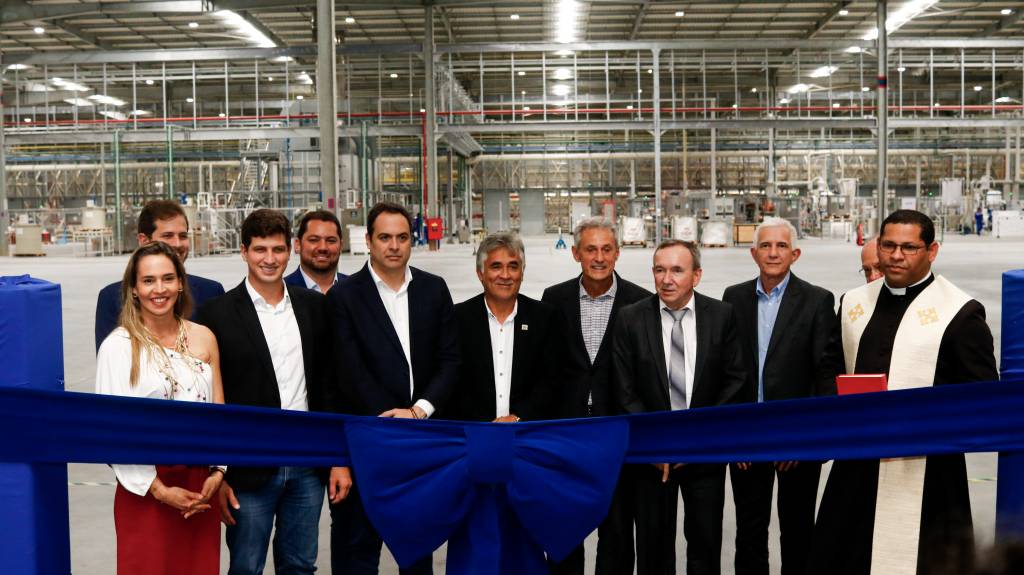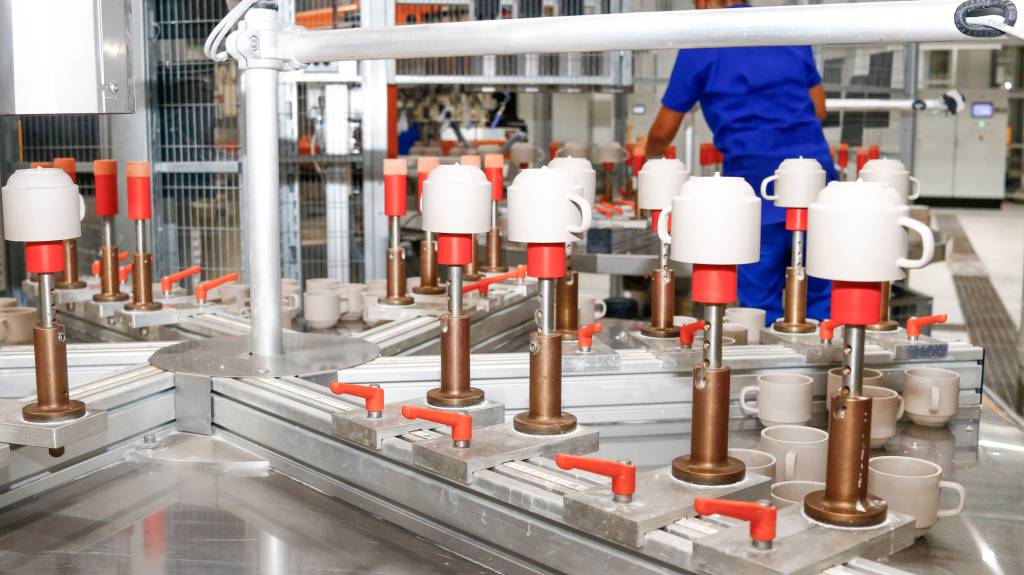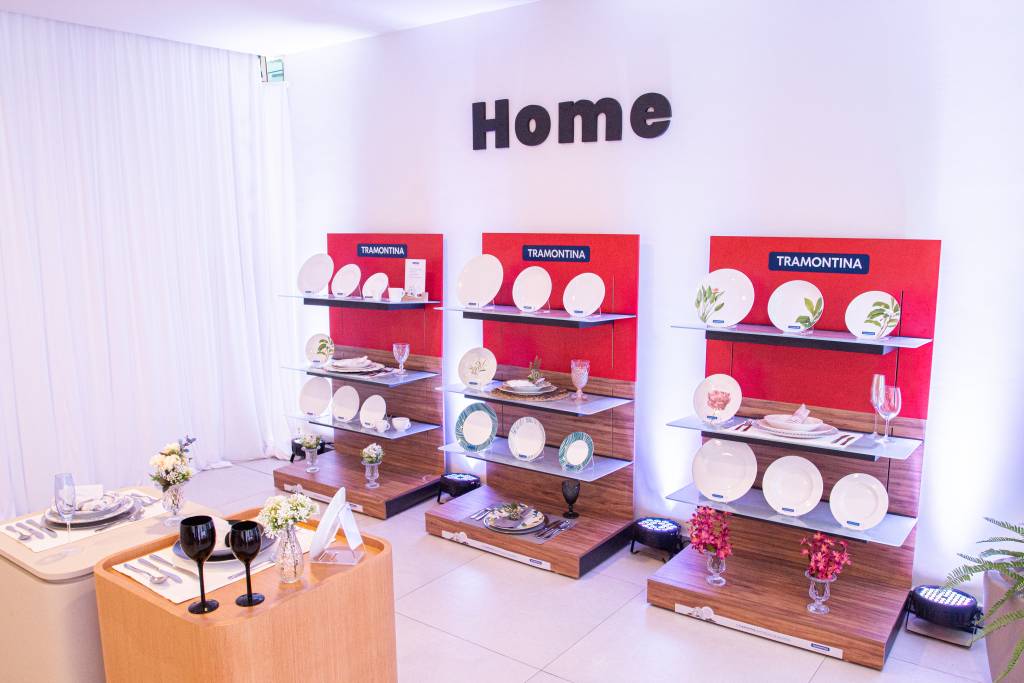Opening of a Tramontina factory in Moreno, Brazil – Lippert installs fully automatic production facilities for hard porcelain
In Moreno, a municipality in the metropolitan region of Recife, a modern, fully automated production plant for hard porcelain using the double-firing method has been constructed on an area of more than 66 hectares. The plant can produce approx. 46,000 plates, platters, cups and saucers per day. Lippert GmbH & Co. KG was privileged to be part of this new building project and provided almost all the equipment for the production processes, starting with the high-pressure moulding for cups and including the kiln loading and unloading as well as glazing facilities.
Ceremonial opening
In May 2022 the ceremonial official opening of the new plant took place, in the presence not only of the Tramontina management and the companies involved in the project, but also numerous representatives from the world of politics and the church. The symbolic cutting of the ribbon was followed by speeches from Tramontina and political representatives and then by a tour of the entire production facility.

The project was started with the first „expansion phase“ as early as March 2019. Despite the difficult conditions during the pandemic, which also hit Brazil very hard, it proved possible to launch the production phase in the 3rd quarter of 2021.
Fully automated processes along the entire production chain
As one of the leading manufacturers in the field of plant engineering for the ceramics industry, Lippert GmbH & Co. KG was able to make a convincing case with its innovative technology and over 70 years of industry know-how, and was entrusted with the automation of the production operations.

The cups are shaped by means of electromechanical presses using Lippert’s TDG 500-20 high-pressure casting technology.
The entire loading and unloading of the biscuit kiln cars is fully automated for flat and hollowware from the shaping area via a high-bay storage system.
In the next stage of production, the flat and hollowware are transported fully automatically, partly by means of AGV’s, to the individual Lippert glazing machines, glazed there and then loaded fully automatically onto the kiln car refractory with the help of transfer devices and state-of-the-art robot technology.
The loading and unloading of the kiln cars of the glost kiln is fully automatic. A storage system with a storage and retrieval unit (SRU) is used for intermediate buffering of the flat and hollow goods between glazing and glost firing.
The finished fired products are unloaded fully automatically and fed to the appropriate foot polishing machines.
Lippert implemented all these sophisticated systems with its decades of experience and expertise as well as cutting-edge camera and robot technology and autonomous guided vehicles (AGVs), to enable the future-oriented and fully automated production of hard porcelain.
The tableware product line is a first
The production plant in Moreno opens up new possibilities for Tramontina. To round off its product portfolio, the company has for the first time included a tableware product line with ceramic articles in the Tramontina catalogue.

Founded in 1911 by Valentin and Elisa Tramontina, the family business has made a name for itself with high-quality and durable knives as well as barbecue accessories, which are used not just for the churrasco skewers popular in Brazil. Over the past 100 years the company has grown into a corporate group with 10,000 employees that exports to 120 countries worldwide. In its nine factories throughout Brazil Tramontina uses the very latest manufacturing technology to produce a wide range of over 22,000 products – including household appliances, kitchen utensils, furniture, tools and now tableware.
Strengthening the region: 300 new jobs
With the construction of its new production facility in Moreno the company aims to support this rural and economically disadvantaged region and to thank the government and regional administration for their committed cooperation. The structurally weak region is to be promoted with the 300 newly created jobs and given a boost in its process of transformation.
Cooperation
We would like to express our sincere thanks to those involved in the Tramontina project for their excellent cooperation during the entire project period and wish them every success in the production and marketing of their new products in future.
